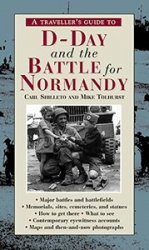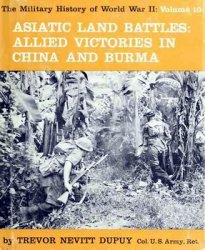Political Jealousies
Crazy Horse could hardly have been expected to welcome what amounted to captivity or to quickly give over all hope of once again living in freedom. Yet he appears to have tried his best to maintain his commitment to live in peace. The greatest obstacle that he had to overcome at Red Cloud Agency turned out not to be mistreatment by the U. S. military but rather political jealousies within his own Oglala community. Such jealously especially emanated from
Red Cloud and other agency Indians who resented the great respect afforded Crazy Horse and perhaps feared repercussions to themselves from any “nonprogressive” attitudes or behavior that he might manifest.
The military wanted to integrate Crazy Horse into reservation life as quickly and thoroughly as possible—a goal that Red Cloud apparently shared at first, until that integration threatened his own position of primacy among the Oglalas. Within days of Crazy Horse’s surrender, both Lieutenant Charles Johnson, military agent at Red Cloud Agency, and Lieutenant Clark were urging him to become an army scout. Crazy Horse finally acceded to the request. He was formally accepted into the scouts on May 12 at Camp Robinson near the agency, becoming one of the three top sergeants among the scouts, along with Spotted Tail and Red Cloud.
On May 26, Lieutenant Colonel Luther P. Bradley became commander of Camp Robinson and the Black Hills, replacing Colonel Ranald S. Mackenzie, who was transferred to the southern plains. As the summer progressed, several important events were planned for the agencies: a series of Sun Dances, a buffalo hunt, and a trip to Washington, D. C., by a delegation of Indian leaders to meet with the new president, Rutherford B. Hayes. All of these events would affect Crazy Horse’s life over the next few months.
The first Sun Dance may have occurred in late June (although the chronology of the Sun Dances that summer remains unclear) and included a reenactment of the Battle at Little Bighorn with northern village warriors (that is, the Northerners of Crazy Horse’s village northeast of Red Cloud Agency) acting the part of the victors and the agency Indians performing as Custer’s men. Given the tensions already existing between the two groups of Oglalas, that scenario seemed readymade for trouble. Indeed, trouble did break out as the sides began to play their roles too realistically, until the action was broken up by Clark. At both this Sun Dance and the subsequent ones, Crazy Horse’s importance was very much in evidence. In addition, the sacred Calf Pipe was transferred to Crazy Horse’s village, angering Red Cloud and other reservation Oglalas.
In the 1960s, Alfred Ribman and James Chase in Morning, both elderly at that time, passed along accounts they had been told of the final Sun Dance. According to them, the Dance had especially honored Crazy Horse. It included five men sacrificing pieces of flesh for their revered leader and five large rocks arranged in a V with the opening facing the rising sun—also dedicated to Crazy Horse.
The army scouts at the agencies were reorganized in July, forming five companies but with northern and agency Indians integrated into the companies. Crazy Horse was made first sergeant of Company C. The sergeants under him included Little Big Man, who increasingly opposed Crazy Horse for leadership of the northern faction and who would play a leading role in the war leader’s death. The reorganization emphasized Crazy Horse’s status as at least an equal to Red Cloud.
Military authorities were anxious to have Crazy Horse travel to Washington, D. C., viewing the trip as a way to impress upon potentially resistant Indian leaders both the power and the fatherly affection of the U. S. government. As an inducement to complying with the request, Lieutenant Clark hinted that
Governmental authorities wanted to make Crazy Horse chief of all the Oglalas, a political carrot that held no sway with Crazy Horse, who was generally quite apolitical, and certainly won him no friends among the agency Indians.
Crazy Horse avoided committing to the trip until he was assured that the promised buffalo hunt would take place. General Crook, also pushing the Washington trip, hosted a council at Red Cloud Agency on July 27 and promised that the buffalo hunt would take place no later than August 5. Dr. James Irwin, recently installed as civilian agent at Red Cloud Agency, offered to provide three cattle and other provisions for the feast that customarily followed such a council. Young Man Afraid of His Horse proposed holding the feast at Crazy Horse’s village, which greatly upset Red Cloud, who believed that the newcomers should come to him for the event. Red Cloud sent two messengers to make his case to Irwin and also to warn him that Crazy Horse wanted to use the buffalo hunt as a way to escape from the agency and return to war. Clearly, Red Cloud had embarked on a plan to marginalize Crazy Horse and sow seeds of deep distrust among the government officials toward him.
As the Washington trip moved forward slowly, the hunt was pushed back. Spotted Tail, among others, urged cancellation of the hunt, joining Red Cloud in warning that Crazy Horse intended to return to war or perhaps join Sitting Bull in Canada. Meanwhile, Crazy Horse had become convinced that the Washington trip was merely a ploy to isolate and imprison or kill him. He described to Frank Grouard a dream in which he stood on a mountain with an eagle soaring above him before it fell dead. The eagle, Crazy Horse believed, represented himself.
Nellie Larrabee
Amid the swirling currents of political intrigue, a personal relationship developed for Crazy Horse. It involved 18-year-old Helen Larrabee (also spelled Laravie), better known as Nellie, a daughter of a French trader, Joe Larrabee, and his Cheyenne wife. Little is known about the details of the relationship, although Nellie apparently had plenty of suitors, including an Oglala named Little Bear. Lieutenant Clark, according to translators Billy Garnett and Baptiste “Big Bat” Fourier, encouraged Crazy Horse, likely anticipating that a serious domestic relationship might make him more accepting of life at the agency.
Black Shawl, of whom Crazy Horse was consistently supportive, readily accepted the young woman, perhaps viewing her as a useful helpmate to Crazy Horse, especially in light of her own continuing medical problems. Black Shawl’s ill health had persisted despite ongoing treatment by agency surgeon Valentine McGillycuddy. Consequently, Nellie moved in with Crazy Horse as his second wife—a marriage that would end 30 days later with the death of her husband.
Nellie came in for strong criticism from interpreter and guide Billy Garnett. In a 1907 interview conducted by Judge Eli Ricker, Garnett blamed “this insidious and evil woman” for sowing distrust in her husband toward government officials, especially concerning the Washington, D. C., trip, which she suggested was a trap.20
The Nez Perce and Frank Grouard's Mistranslation
As the summer of 1877 advanced, to the north the great Nez Perce leader Chief Joseph was accompanying his people on a desperate journey to reach Canada to avoid being forced onto an Idaho reservation. General Crook decided to use Lakota warriors against the Nez Perce. He naturally turned to the greatest of Lakota war leaders, Crazy Horse, for assistance. Lieutenant Clark conveyed the decision to Crazy Horse, and on August 31 the two men met to discuss the war leader’s participation. Crazy Horse, accompanied by his close friend Touch the Clouds, High Bear, and about 20 warriors, entered Clark’s quarters. Frank Grouard served as interpreter.
Crazy Horse clearly was reluctant, especially as military officials had not yet made good on their promised buffalo hunt. He explained that upon arriving at Red Cloud Agency, he had promised to remain peaceful. Yet despite his expressed misgivings, Crazy Horse finally yielded. According to Dr. McGillycuddy, who received reports of the proceedings from individuals who were in attendance (reportedly including the translator Louis Bordeaux), Crazy Horse stated that “we came in for peace, but now that the Great Father asks our help, we will go north and fight until there is not a Nez Perce left.” According to McGillycuddy, Grouard misinterpreted Crazy Horse’s words to say that “we will go north and fight until not a white man is left.”21
The misinterpretation immediately sent the meeting into turmoil, with Clark and Crazy Horse growing increasingly angry at each other. Grouard, uncomfortable with the hostile environment, left the meeting. His replacement, Billy Garnett, was instructed by Clark to ask Crazy Horse once again whether he would fight against the Nez Perce. By this time, tempers had risen far enough that Crazy Horse was in no mood to accommodate Clark and flatly refused. Clark, in turn, informed Lieutenant Colonel Bradley that Crazy Horse, Touch the Clouds, and High Bear were planning to leave and resume their warfare.
The reasons for Grouard’s distortion remain unclear. Incompetence as a translator is an unlikely possibility given Grouard’s many years spent with the Lakotas. Bordeaux accused Grouard of deliberately distorting Crazy Horse’s words. Grouard was viewed by many—including Sitting Bull, although apparently not by Crazy Horse—as untrustworthy after he joined the U. S. military in actions against men who had earlier befriended him. Bordeaux, as noted in E. A. Brininstool’s lengthy article “How Crazy Horse Died” in the journal Nebraska History, argued that fear of possible future retribution led Grouard to try to get rid of Crazy Horse.
Woman Dress's Deception
General Crook ordered all loyal Oglalas to attend a council meeting on White Clay Creek south of Spotted Tail Agency on September 3; he also extended an invitation to Crazy Horse. Lieutenant Clark dispatched He Dog as an intermediary, and Crazy Horse’s old friend had his wife prepare a feast to which he invited both Crazy Horse and officers from Camp Robinson. Crazy Horse,
However, declined to engage in further talks. Crook persisted with a personal invitation, and Crazy Horse relented, informing Clark that he would attend. This change of heart was unwelcome news to those agency Indians who did not want the unpredictable and independent-minded war leader back in the good graces of U. S. officials so he could resume his earlier position of authority at the agencies.
As Crook and Clark were en route in an army ambulance, they met Garnett and Pourier talking with Woman Dress. Woman Dress, a cousin of Red Cloud and a Clark trustee who regularly spied on Crazy Horse for the officer, warned that Crazy Horse planned to pick a quarrel with Crook at the council and then stab him. Garnett and Pourier (the latter was related to Woman Dress through marriage) vouched for his truthfulness. Supposedly, Woman Dress had received the information from Lone Bear, whose brother, Little Wolf (both of them also Clark informers), had overheard Crazy Horse speaking of his plan in his tipi. The story, of course, was completely concocted. Nevertheless, Clark convinced Crook to return to Red Cloud Agency with the feigned excuse that he had been called back. Clark then sent Garnett to the council with orders to summon loyal chiefs to Camp Robinson.
That afternoon, the contingent, including Red Cloud, appeared at Colonel Bradley’s headquarters to meet with Crook. Their conclusion was that Crazy Horse should be killed. According to Lieutenant Bourke, Crook rejected that proposal as murder, opting instead for having him arrested by loyal Indians.
After the meeting, a group led by Red Shirt that included Little Bear, the previous suitor of Nellie Larrabee, approached Crazy Horse’s tipi and demanded that Nellie be given back to them. The visit apparently was an attempt to provoke a confrontation that might lead to killing Crazy Horse. However, Worm came out and informed the group that his son was not at home. The group then killed Crazy Horse’s favorite horse and took Nellie with them, settling for a deeply humiliating insult to the absent Crazy Horse.




 World History
World History









